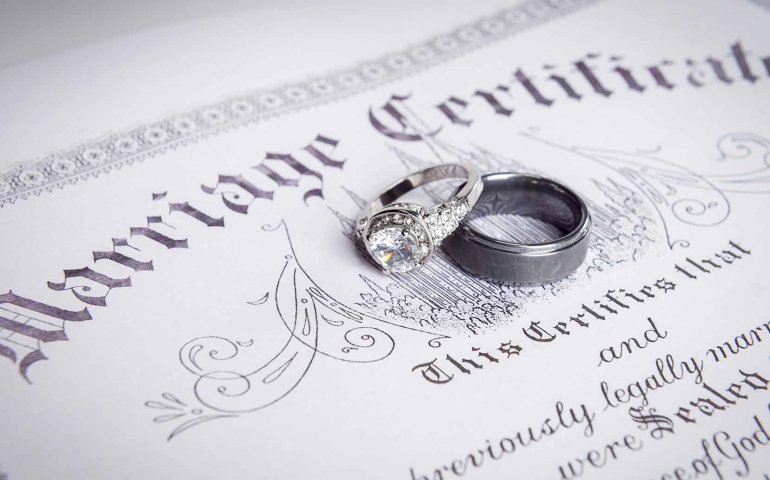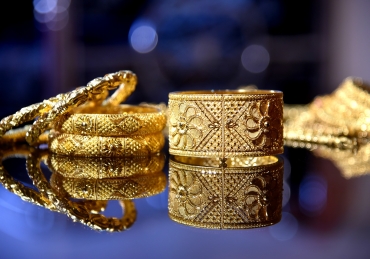Nikāḥ and Civil Marriage
Question
(1) Is it necessary to undertake a civil marriage once the Nikāḥ is conducted?
(2) Is it permissible to undertake a civil marriage once the Nikāḥ is conducted? Is it better to do so?
(3) Is a civil marriage ceremony sufficient from an Islamic perspective?
بسم الله الرحمن الرحیم
Answer
(1) It is not necessary to undertake a civil marriage once the Nikāḥ is conducted. However, it is advisable because the English legal system does not automatically recognise the Nikāḥ as marriage. Therefore, it is advisable to complete the civil marriage so that the marriage and rights arising from it are recognised.
(2) It is permissible. Although this is a matter of personal choice, it is advisable to undertake a civil marriage as mentioned above.
(3) The civil marriage ceremony is sufficient if it fulfils the Islamic conditions of Nikāḥ; this includes the presence of two mature Muslim male witnesses or one mature Muslim male and two mature Muslim female witnesses. However, it is preferable to publicise the Nikāḥ as much as possible which is why the Ḥanafī, Shāfiʿī, Ḥanbalī and some Mālikī scholars suggest that it is mustaḥab (desirable) to conduct the Nikāḥ in a Masjid. It is worth noting that some Masjids in the UK are registered to complete the civil marriage process alongside the Nikāḥ.
قال القدوري في مختصره (صـ ۱٤٥): ولا يعقد نكاح المسلمين إلا بحضور شاهدين حرين بالغين عاقلين مسلمين أو رجل وامرأتين ، انتهی ، وعن عبد الله بن الزبیر أن النبي صلی الله علیه وسلم قال: أعلنوا النكاح ، رواه ابن وهب في الجامع (۲٤٥) ومن طریقه أحمد (۱٦۱۳۰) والطبراني في الأوسط (٥۱٤٥) والبیهقي (۱٤٦۸٦) وابن حبان (٤۰٦٦) والحاكم (۲۷٤۸) وصححاه ووافقه الذهبي ، ونقل الحافظ في الفتح (۹: ۲۲٦) تصحیح ابن حبان والحاكم وسكت علیه ، وقال الهیثمي (٤: ۲۸۹): رجال أحمد ثقات ، انتهی ، واستحب الجمهور النكاح في المسجد ، فمن الحنابلة صرح باستحبابه ابن تیمیة في فتاویه (۳۲: ۱۸) وابن القیم في إعلام الموقعین (۳: ۱۰۲) والبهوتي في كشاف القناع (۲: ۳٦۸) ، ومن المالكیة الخرشي في شرح مختصر خلیل (۷: ۷۱) ، ومن الشافعیة ابن حجر المكي في تحفة المحتاج (۷: ۲۱٦) والخطیب الشربیني في مغني المحتاج (٤: ۲۰۷) والرملي في نهایة المحتاج (٦: ۱۸٥) والشرواني في حاشیة تحفة المحتاج (۷: ۱۸۹) ، ومن الحنفیة ابن الهمام في فتح القدیر (۳: ۱۸۹) وابن نجیم في البحر الرائق (۳: ۸٦) والأشباه والنظائر (٤: ٥۸) وسراج الدین بن نجیم في النهر الفائق (۲: ۱۷٦) والشلبي في حاشیة تبیین الحقائق (۲: ۹٥) وعلي القاري في المرقاة (٥: ۲۰۷۲) وعبد الرحمن شیخي زاده في مجمع الأنهر (۱: ۳۱۷) والحصكفي في الدر المختار (۳: ۸) وابن عابدین في رد المحتار (۱: ٦٦۲ و ۳: ۸) ، أما جمھور المالكیة فلم یستحبوا النكاح في المساجد بل جوزوه ، كما جزم به الحطاب في مواهب الجلیل (۳: ٤۰۸) ، وهو ظاهر كلام ابن العربي في عارضة الأحوذي (٤: ۳۱۱) وخلیل في مختصره والدردیر في الشرح الكبیر (٤: ۷۰) ، غیر أن الدسوقي قال: قد استحبه بعضهم للبركة ولأجل شهرة النكاح ، انتهی۔
Allah knows best
Yusuf Shabbir
5 Jumādā al-Thāniyah 1438 / 4 March 2017
Approved by: Mufti Shabbir Ahmad Sahib






